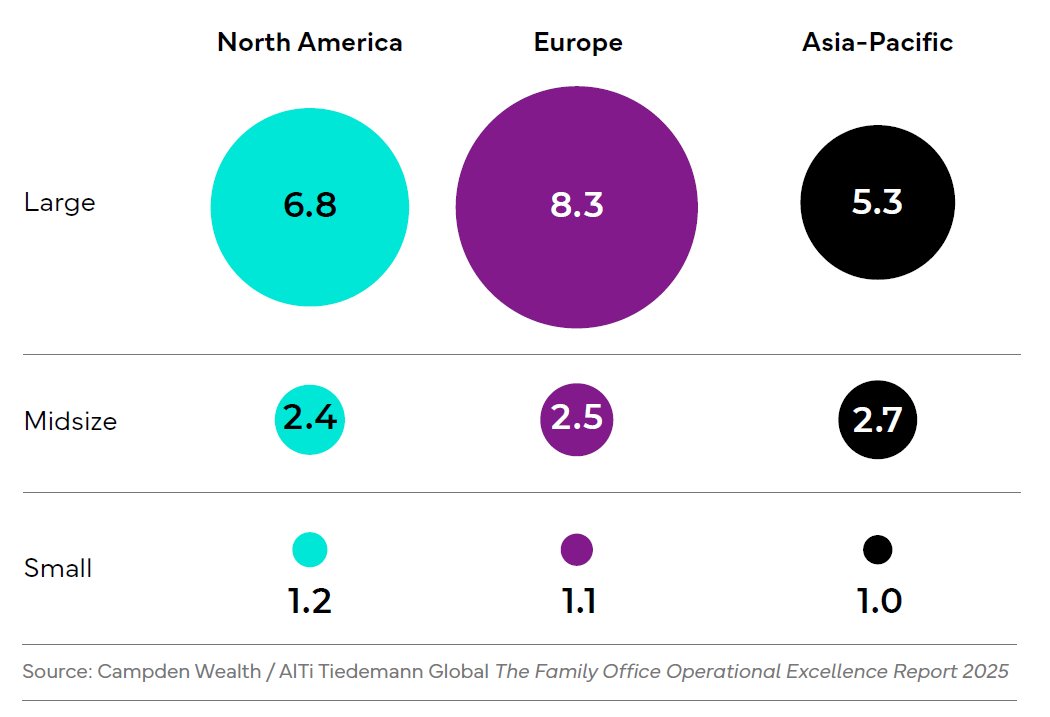Attracting the top talent.. from CEOs to analysts, what are Family Offices paying their people? 🧵
💵 Average base salary of a US Family Office CEO is $556,100, total compensation including bonuses is $1,130,500
💵 Top 10% of Family Office CEOs in the US earn $1,520,000
💵 CEOs at $1 billion+ Family Offices have an average base salary of $919,400 and total compensation of $2,370,100
💵 CEOs of US Family Offices with under $100M of assets get an average base salary of $432,600 and total compensation of $491,800
💵 Chief Investment Officers receive an average of $410,600 and total compensation of $810,800
💵 Top 10% Chief Investment Officers are receiving an average salary of 750,000 and compensation of $1,336,000
💵 CIOs at $1 billion+ US Family Offices are being paid an average base salary of $606,100 and total compensation of $1,160,000
💵 Chief Compliance/Risk officers are receiving an average base salary of $223,400 and total compensation of $339,100
💵 Senior Portfolio managers are in line for an average $281,900 and total compensation $651,400, with top 10% earning more than $1 million
💵 Portfolio managers are earning an average $184,700 base salary and total compensation of $414,300
💵 Senior Analysts are earning an average base salary of $152,100 with total compensation at $238500
If you found this thread informative and helpful, give us a like and follow us for more updates and insights in the future. #familyoffice #compensation #benchmarking
• • •
Missing some Tweet in this thread? You can try to
force a refresh













